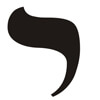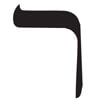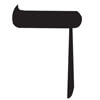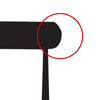TF,
The Mosaic Law of the OT was for the Israelites, God's chosen people. We know this from OT passages such as Ex 19 and Lev 26.
Christians not under Mosaic Law
One of the NT emphases and especially in Pauline epistles is that Christian believers are no longer under the rule of the Mosaic law. This is taught clearly in passages such as Rom. 6:14; 7:1-14; Gal. 3:10-13; Gal 3: 24-25; Gal 4:21; Gal 5:1, 13 and 2 Cor. 3:7-18. In spite of this clear NT emphasis some believers want to insist that the Mosaic Law, especially the 10 Commandments, is in force for Christians. That's not what those Pauline verses teach.
We need to remember that the Mosaic Law was written for the chosen people of Israel. We know this from Exodus 19; Leviticus 26:46; and Romans 9:4.
In Matt 5:17-18 (NIV) in the Sermon on the Mt, Jesus did not teach that the law of Moses was binding and would continue forever. If that was his teaching, it would contradict Rom 10:4; Gal 3:23-25 and Eph 2:15.
The word 'abolish' in Matt 5:18 literally means 'to loosen down'. In the NT it is used 17 times in situations such as the destruction of the Jewish temple by the Romans (Matt 26:61; 27:40; Acts 6:14). It can mean to overthrow, deprive of success, to invalidate.
Notice the contrast in Matt 5:17-18 of 'abolish' with 'fulfill'. So abolish is the opposite of fulfill.
When Jesus was on earth, his goal was not to oppose the law but he loved and obeyed the law and fulfilled its prophecy concerning himself (see Lk 24:44).
Jot and Tittle
What does Matt 5:18 mean? 'For truly I tell you, until heaven and earth disappear, not the smallest letter, not the least stroke of a pen, will by any means disappear from the Law until everything is accomplished'.
- A jot is the tenth letter in the Hebrew alphabet and the smallest. It was written above the line and looks to us rather like an apostrophe:
(source)
- 'tittle' is kerai, which is a small projection, a small hook that distinguishes one Hebrew letter from another.
A tittle is even smaller than a jot. A tittle is a letter extension, a pen stroke that can differentiate one Hebrew letter from another. An example can be seen in the comparison between the Hebrew letters resh and daleth (or dalet):
The resh (on the left) is made with one smooth stroke. The daleth (on the right) is made with two strokes of the pen. The letters are very similar to each other, but the distinguishing mark of the daleth is the small extension of the roof of the letter:
That extension is a tittle. See Psalm 119:25 and 153 for pictures of the daleth and resh, respectively (
source).
In today's lingo, we would say something like: 'With respect to the OT's fulfillment, not a "t" will be uncrossed and not an "i" will remain undotted UNTIL all of the OT is fulfilled'.
So, what does Matt 5:18 mean in relation to no jot or tittle of the Law will disappear until all is 'accomplished'? Matt 5:18 (NLT) reads, "Until heaven and earth disappear, not even the smallest detail of God's law will disappear until its purpose is achieved”. That's the meaning!
Dietary Laws?
Leviticus chapter 11 (NIV) provides lists of dietary restrictions God gave to the nation of Israel. They were for the Jews - not for Gentiles or Christians. This OT chapter details which foods were not kosher for the Jews.
Non-kosher food for the Jews included: eating pork, shrimp, shellfish and many types of seafood, most insects, scavenger birds, and various other animals. They were never to apply to the Gentiles or Christians.
The dietary rules were never intended for anyone other than the Israelites to demonstrate they were a peculiar nation. So Jesus called all food clean (kosher) - Mark 7:19 (NIV).
What happened in the apostle Peter's vision (Acts 10:15 NIV)? '‘Do not call anything impure that God has made clean?' Which foods has Jesus called impure? None!
When we come to the NT, should these dietary regulations apply to believers? Not according to Jesus! He said: 'Jesus declared all foods clean' (Mk 7:19 NIV).
The Mosaic Law of the OT was for the Israelites, God's chosen people. We know this from OT passages such as Ex 19 and Lev 26.
What about Christians eating or refusing to eat kosher food? Matt 14:1-23 (NIV) is clear: If a person is not mature enough to understand that ALL foods are clean, for the sake of the conscience of the immature person, the Christian should refrain from eating supposedly 'unclean' food. Christians have a right before God of eating whatever they want, but the Scriptures take a stand against gluttony. See 2 Peter 1:5-7, 2 Timothy 3:1-9, and 2 Corinthians 10:5. One of the fruit of the Spirit for believers is self-control (Galatians 5:22).
There you have my dissertation.
Oz




